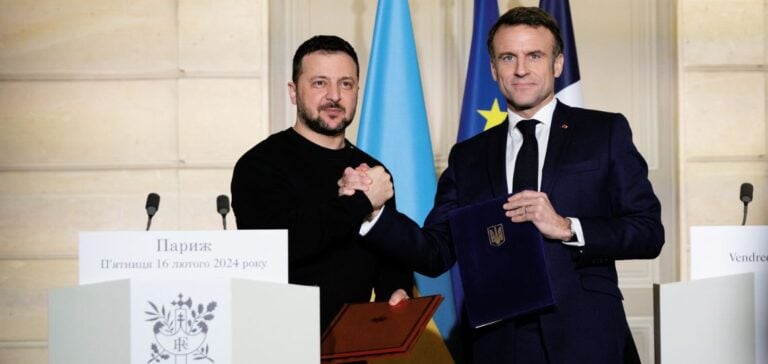Nuclear cooperation between Ukraine and France has been strengthened by a new agreement signed between Energoatom and EDF. This partnership follows on from the original 1998 agreement on the peaceful use of nuclear energy, recently renewed for a further 20 years. The agreement covers the study of European Pressurized Water Reactor (EPR) and Nuward Small Modular Reactor (SMR) technologies, as well as the exchange of experience in nuclear power plant operation, safety maintenance, reliability and reactor efficiency.
Strategic Collaboration for Energy Independence
Ukraine and France aim to strengthen their energy independence by diversifying their nuclear fuel sources. This agreement also includes the supply of nuclear fuel for VVER reactors, particularly for countries wishing to reduce their dependence on Russia. Petro Kotin, President of Energoatom, emphasized the importance of this cooperation: “Ukraine, like France, has unique experience in the nuclear industry. Our active cooperation and joint efforts to increase the role of nuclear power in Europe will help to achieve climate goals and ensure stable production of clean, safe electricity.”
Renewal and Extension of the 1998 Agreements
On the same day, the governments of the two countries exchanged letters renewing their 1998 agreement on the peaceful use of nuclear energy for a further 20 years. The agreement, signed by Yulia Svyridenko, Ukraine’s Minister of the Economy, and Stéphane Séjourné, France’s Minister of Foreign Affairs, creates a legal framework for cooperation in the field of nuclear plant maintenance, and extends the agreement that expired four years ago. The ministers also signed agreements on French financing and support for Ukrainian critical infrastructure, as well as broader support for Ukrainian businesses. The agreements were signed during Ukrainian President Volodymyr Zelensky’s visit to France.
Prospects for Europe’s Nuclear Future
Ukraine currently operates 15 nuclear units, generating around half of its electricity, including six at the Zaporizhzhia nuclear power plant, which has been under Russian military control since March 2022. The country plans to build nine new AP1000 units from Westinghouse, and is also exploring the potential deployment of small modular reactors. France, meanwhile, already derives around 70% of its electricity from nuclear power, and plans to build 14 new reactors to usher in a new era of nuclear generation. This strategic partnership between EDF and Energoatom marks a milestone in the development of nuclear power in Europe. By strengthening their cooperation, these two countries are positioning themselves as key players in achieving global climate objectives and improving energy security.






















